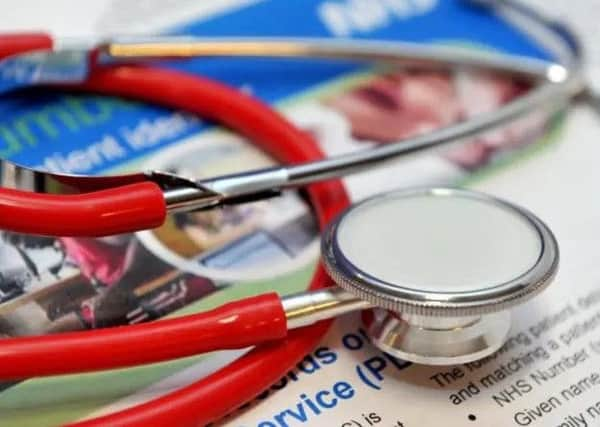NHS medication mistakes '˜could be contributory factor' in more than 20,000 deaths


The study, believed to among the first of its kind, has prompted swift intervention by Health Secretary Jeremy Hunt who will today set out a raft of measures to tackle the number of errors.
From delivering a prescription an hour late to a patient being given the wrong medication, there are an estimated 237 million such mistakes in the NHS in England every year, the study reveals.
Advertisement
Hide AdAdvertisement
Hide AdIt was commissioned by the Department of Health and Social Care and carried out by experts at the Universities of Sheffield, York and Manchester, who looked at 36 separate studies on medication error rates in primary care, care homes and secondary care.
The researchers also found that there are about 700 deaths each year as a result of avoidable adverse drug reactions (ADRs).
However, they say these could be a contributory factor in more than 22,000 deaths annually.
The medication errors are costing at least £98.5m per year, according to the research.
Advertisement
Hide AdAdvertisement
Hide AdBut it warned that almost three in four mistakes are unlikely to result in harm to patients.
Fiona Campbell, research fellow at the University of Sheffield’s School of Health and Related Research, said: “Measuring harm to patients from medication errors is difficult for several reasons, one being that harm can sometimes occur, when medicines are used correctly, but now that we have more understanding of the number of errors that occur we have an opportunity to do more to improve NHS systems.”
Addressing the Global Patient Safety summit, a gathering of world-leading experts on patient safety in London today, Mr Hunt will unveil a package of new measures to be introduced by the Government, in an effort to slash the number of mistakes.
They include new NHS systems that link prescribing data in the health service, and rolling out the emerging electronic-prescribing system to more hospitals.
Advertisement
Hide AdAdvertisement
Hide AdThere are also plans to give pharmacists new defences if they are prosecuted for accidental medication errors, to help the NHS create “a culture of openness and transparency”.
“My mission has always been to make the NHS one of the safest healthcare systems and although we do well in international comparisons this study shows medication error in the NHS and globally is a far bigger problem than generally recognised, causing appalling levels of harm and death that are totally preventable,” Mr Hunt will tell the summit today.
“We are taking a number of steps today, but part of the change needs also to be cultural: moving from a blame culture to a learning culture so doctors and nurses are supported to be open about mistakes rather than cover them up for fear of losing their job.”
Bosses at the Patients Association have warned that errors made in prescribing medication are a “major source of harm” for patients.
Advertisement
Hide AdAdvertisement
Hide AdRachel Power, chief executive of the Patients Association, said: “This is a promising and welcome package of measures. Improving safety for patients within the NHS will require many strands of work, also including greater openness when errors happen and an improved learning culture so that the same mistakes do not keep getting repeated. Medication errors are undeniably a major source of harm for patients, so we hope these measures will bring the promised benefits.”